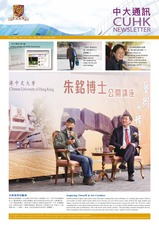Professor Mak Su-yin holds a BA in English Literature and Music from the University of Toronto, an MA in Musicology from Queens College, City University of New York, and a double PhD in Musicology and Music Theory from the Eastman School of Music, University of Rochester. Her approach to musical scholarship is interdisciplinary in nature, and explores the relationship between musical structure and expression in tonal music. Research areas include Schenkerian analysis, text-music relations, musical semiotics, and the history of music theory. She is recipient of the 2008 Emerging Scholar Award from the Society for Music Theory.
You have a BA in music and literature. What was it that made you decide to specialize in music and not literature?
Music is at once a metaphor for natural expression and the source of the greatest linguistic artifice. By this I mean that music is able to prompt immediate, specific emotional or physical responses in listeners, but how it does so seems mysterious. Music communicates in a way that is fundamentally different from verbal language, which is how most people (including myself) describe, conceptualize or communicate our understanding of the world. When I was a student, I was drawn to studying music because I wanted to gain a better understanding of how this mysterious language works; and even to this day, commitment to a sense of mystery continues to motivate my study of music.
Why are you interested in Schumann and Schubert, in particular Schubert on whom you’ve written a book Schubert’s Lyricism Reconsidered?
When most people hear that I am a Schubert scholar they assume I work on the song cycles, but actually Schubert’s Lyricism Reconsidered is a book about Schubert’s instrumental music. The premise of the book is that the unorthodox features of Schubert’s late instrumental style reflect the linguistic conceptions of idealist aesthetics, and bear strong resemblance to the discursive strategies typical of lyric poetry. Schubert’s artistic sensibility was informed by two parallel but separate traditions, the compositional tradition he inherited from Mozart and Beethoven, and the literary tradition he shared with his circle of friends. Schubert moved amphibiously between them, and in so doing forged a novel and unique approach to instrumental form.
Could you tell us about your creative work?
I write bilingual poetry, and have also translated the literary writings of my friends. (My translation of several pieces by the painter Wong Yan-kwai’s will appear in Renditions.) Last year, I collaborated with composer Tang Lok-yin (CUHK DMus graduate) in A Tree Rhapsody, an original English-language chamber opera that was premiered at the 39th Hong Kong International Arts Festival in February 2011. I was the playwright and librettist.
You’re a woman of many interests and talents. What do you like to do in your free time?
Creative writing and literary translations, attending lots of performances (not only classical music concerts, but also theatre and dance), films, poetry readings, book launches, art openings… I am irreparably arty. But I also like going to the gym.
Who would you like to be or what would you like to do in your next life?
I want to be like Qian Zhongshu, Chinese literary scholar and writer, minus the Cultural Revolution suffering of course. I admire people who have mastery of both Chinese and Western learning. Qian was equally at ease in Chinese and Western cultures, and accomplished both in scholarship and creative writing. When I retire, I would want to take courses in the Department of Chinese and learn, for example, how to write Chinese classical poetry. 


































































































































































Social Bookmarks